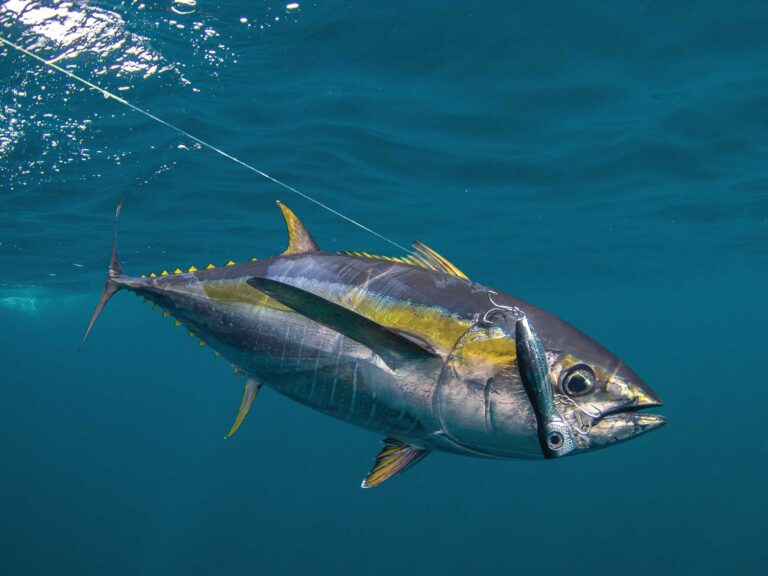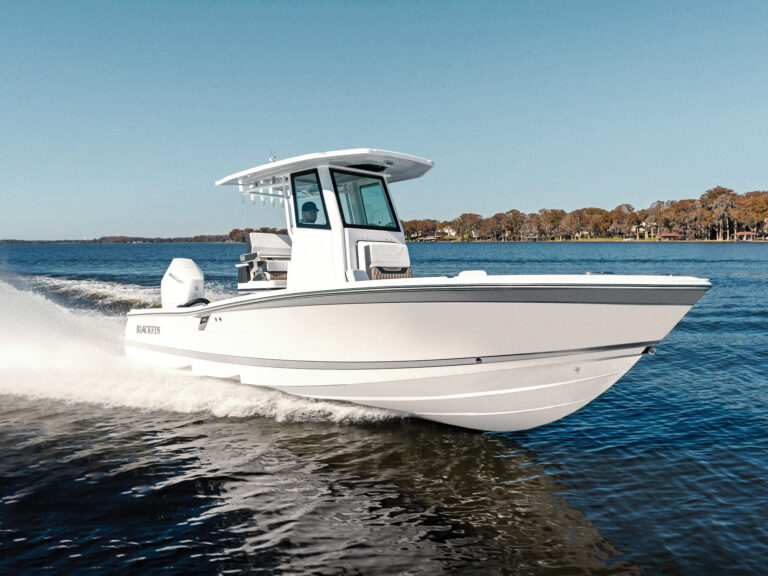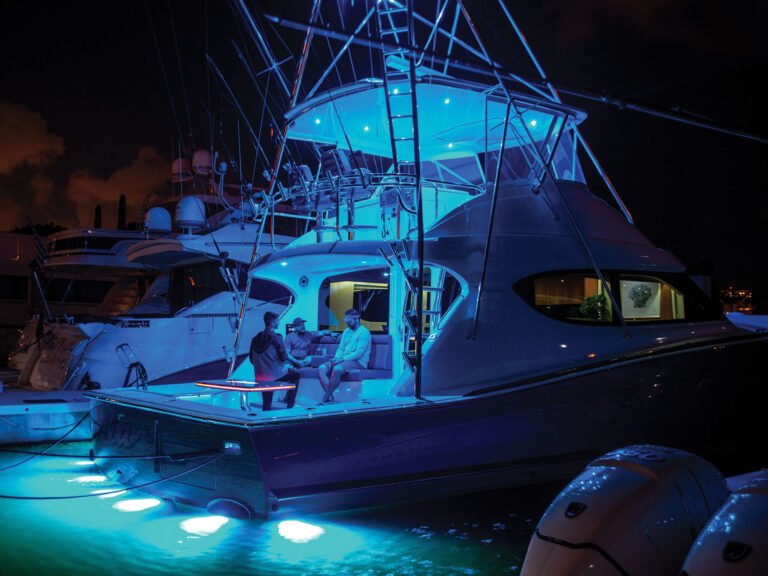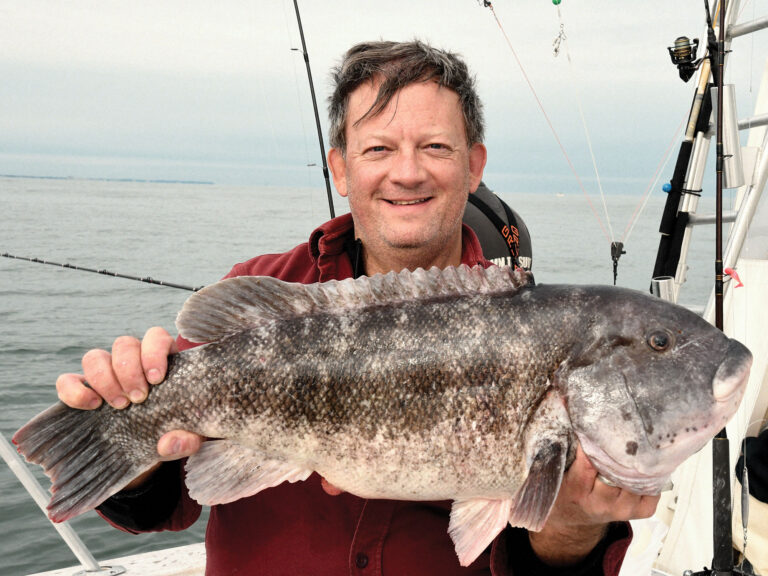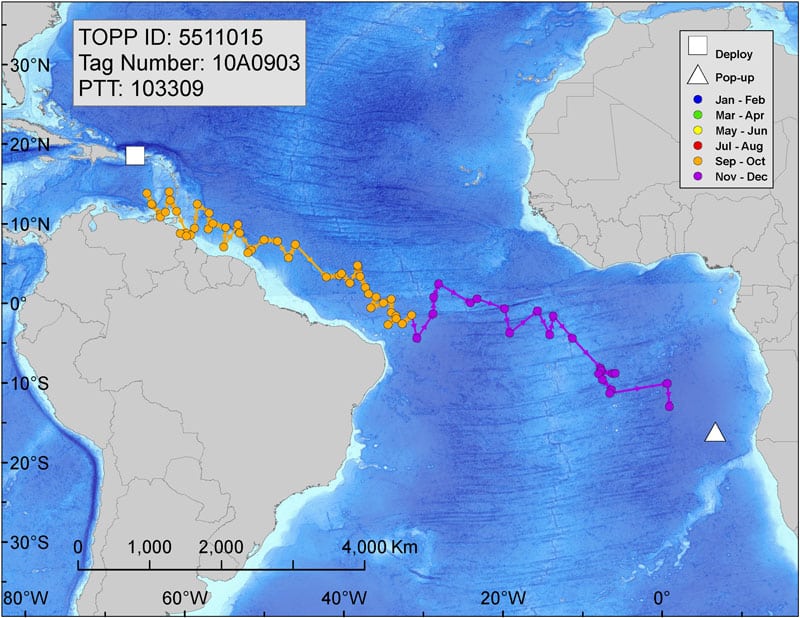
IGMR
A marlin tagged in Puerto Rico during a tournament last September has traveled over 4,700 miles across the Atlantic Ocean, earning team Texas-Scot Connection a win in the first year of the IGFA Great Marlin Race.
Six tagging events connected with the Race helped to deploy 23 satellite tags in blue and black marlin in three oceans. A total of 11,484 nautical miles have thus far been tracked from the tags on these majestic game fish, but one tag alone accounts for 41% of that distance – that which belonged to Texas-Scot Connection, sponsored by Trevor Somny, Bruce McKee, and Bill Crawford during the Club Nautico de San Juan 58th Annual Billfish Tournament that was held in Puerto Rico September 5-11, 2011.
Traversing the Atlantic Ocean and covering 4,776 nm, this tag, placed in a 260 kg (575 lb) blue marlin, has officially won the first year of the IGMR. It also represents the longest track ever recorded from an electronic tag in a marlin.
Although the Texas-Scot Connection tag covered the lion’s share of the distance that has been reported back from the satellite tags so far, the second and third place tags also made notable journeys. The second place tag, deployed and sponsored by Bjorn Farley in a 100 kg (220) lb blue marlin during the 2012 GAMEX/Australian International Billfish Tournament on March 29th, traveled 1,035 nm and popped up 310 nm west of Java, Indonesia. Following close behind in third place was the tag sponsored by Wayne Ritchie and Ivan Hartley (Ritchy Auto, A Ford Motor Dealer) and Team W, which traveled 1,018 nm, rounding the Cape of Good Hope after it was deployed in a 150 kg (330 lb) blue marlin during the Fourth Colombia Billfish Classic, hosted by the South Africa Deep Sea Angling Association in February of 2012.
“These fish are covering incredible distances,” observed IGMR co-chair and Stanford University marine biologist Dr. Randy Kochevar. “The data we are collecting through the IGFA Great Marlin Race are giving us a new level of insight about where these fish are traveling, and how they are using their open ocean habitat.”
In addition to expanding our knowledge about one of the ocean’s most coveted game fish, the data from the IGMR has also already made an impact in fisheries management. The winning tag and its journey across the Atlantic were referenced in the IGFA’s Congressional testimony in support of the Billfish Conservation Act, which was passed into law on October 5, 2012.
“Good science helps us achieve better management of our resources, which ultimately
benefits anglers everywhere in the world,” commented IGMR co-chair and IGFA Conservation Director Jason Schratwieser. “By being able to demonstrate population connectivity on a global level we are able to petition for better conservation measures for these species.”
Scientists and anglers alike are eagerly waiting for tags to begin reporting back from the IGMR tagging events that have taken place in Portugal, Spain, and Hawaii in the USA in the past few months. This year’s tags have been programmed to pop up after 180 days, so we hope to be able to collect even more data.
The winners of this year’s Race will receive complimentary lodging, and tickets to the 29th Annual IGFA International Auction & Banquet at IGFA headquarters in Dania Beach, Florida on January 25, 2013 to celebrate their victory and toast the angler – Mike Benitez – who tagged their winning fish. Benitez passed away just two days before his tag popped up, but his team’s IGMR victory – and the data collected from it – remain testament to his angling legacy in Puerto Rico.
—Source: IGFA





